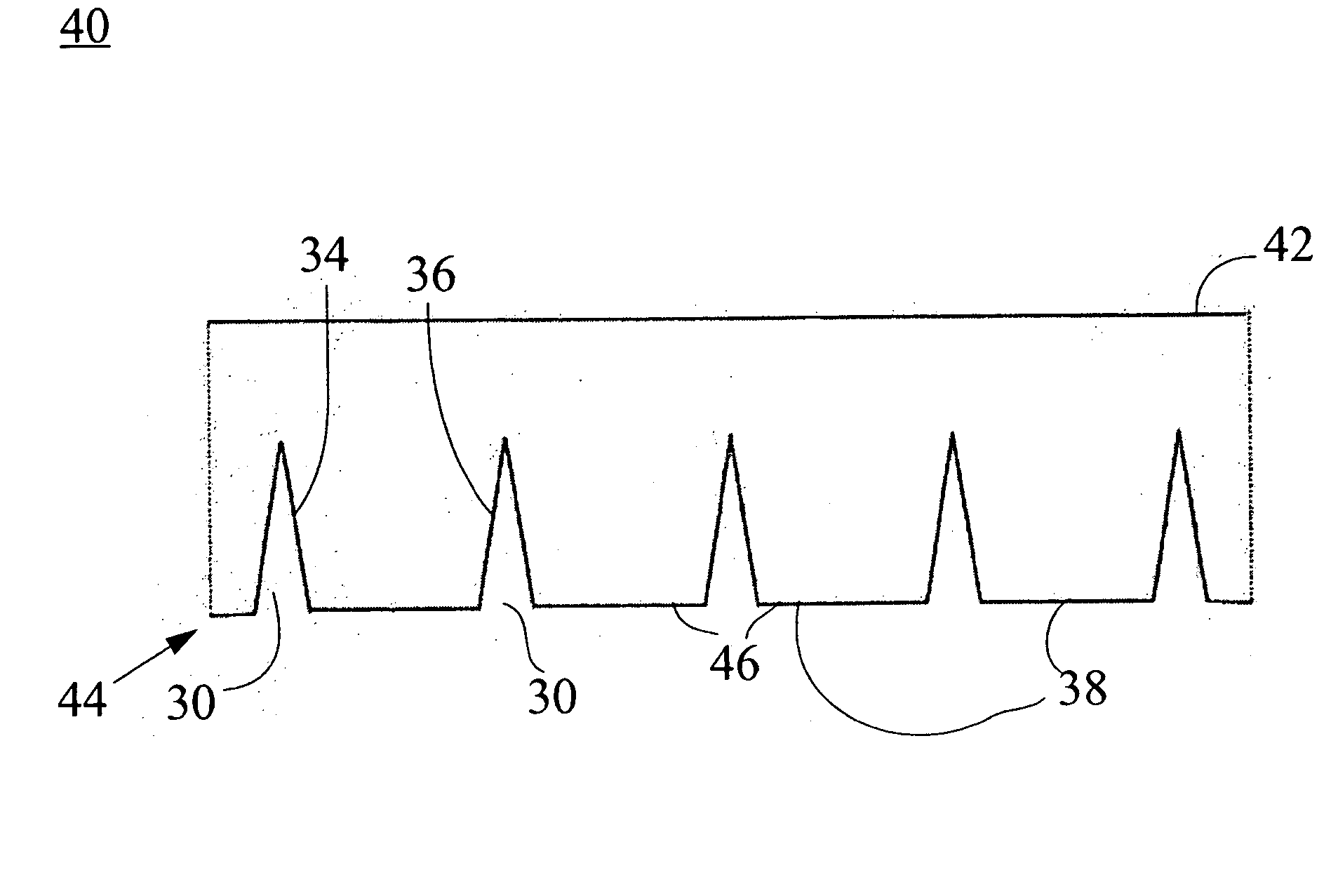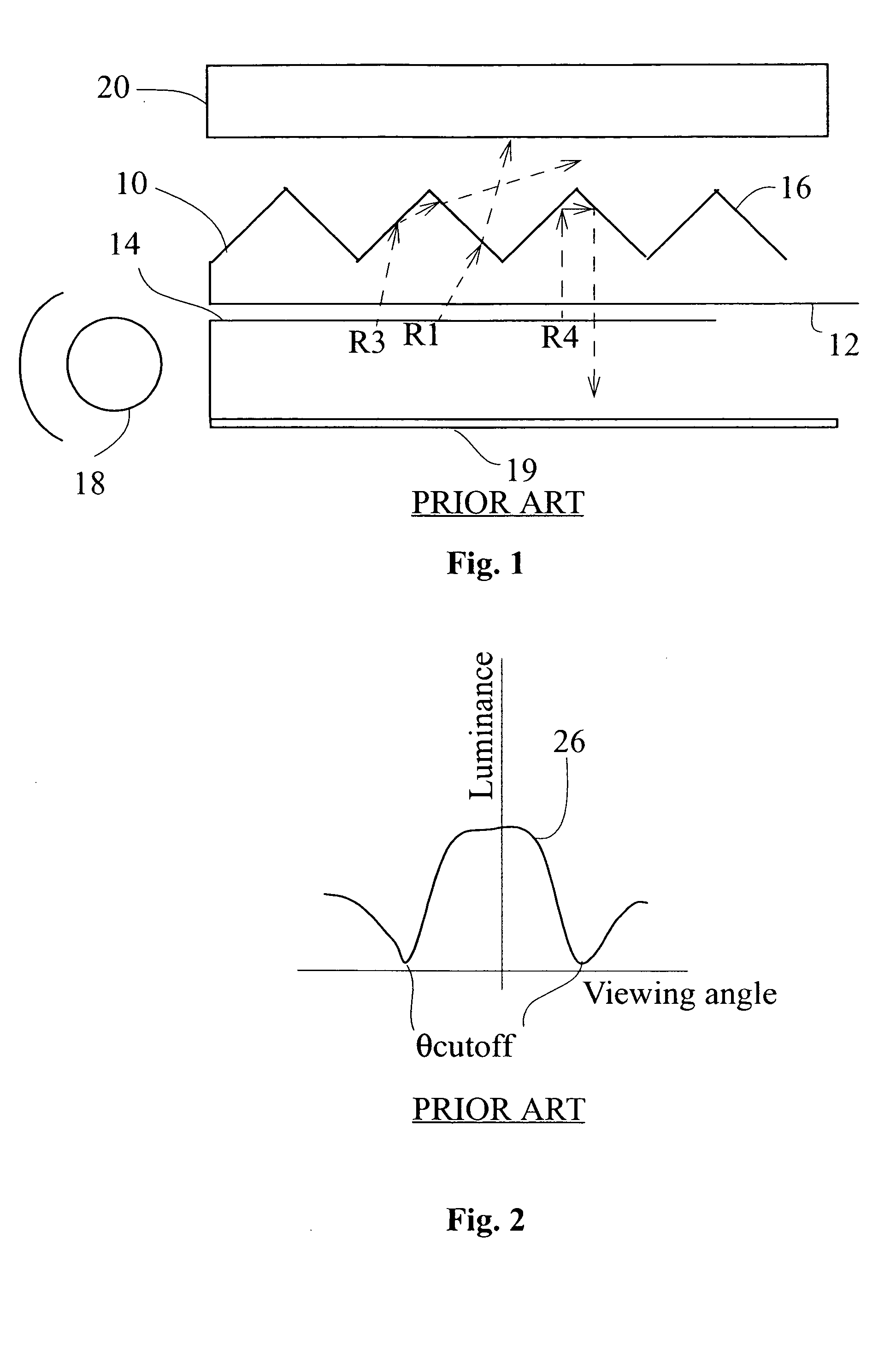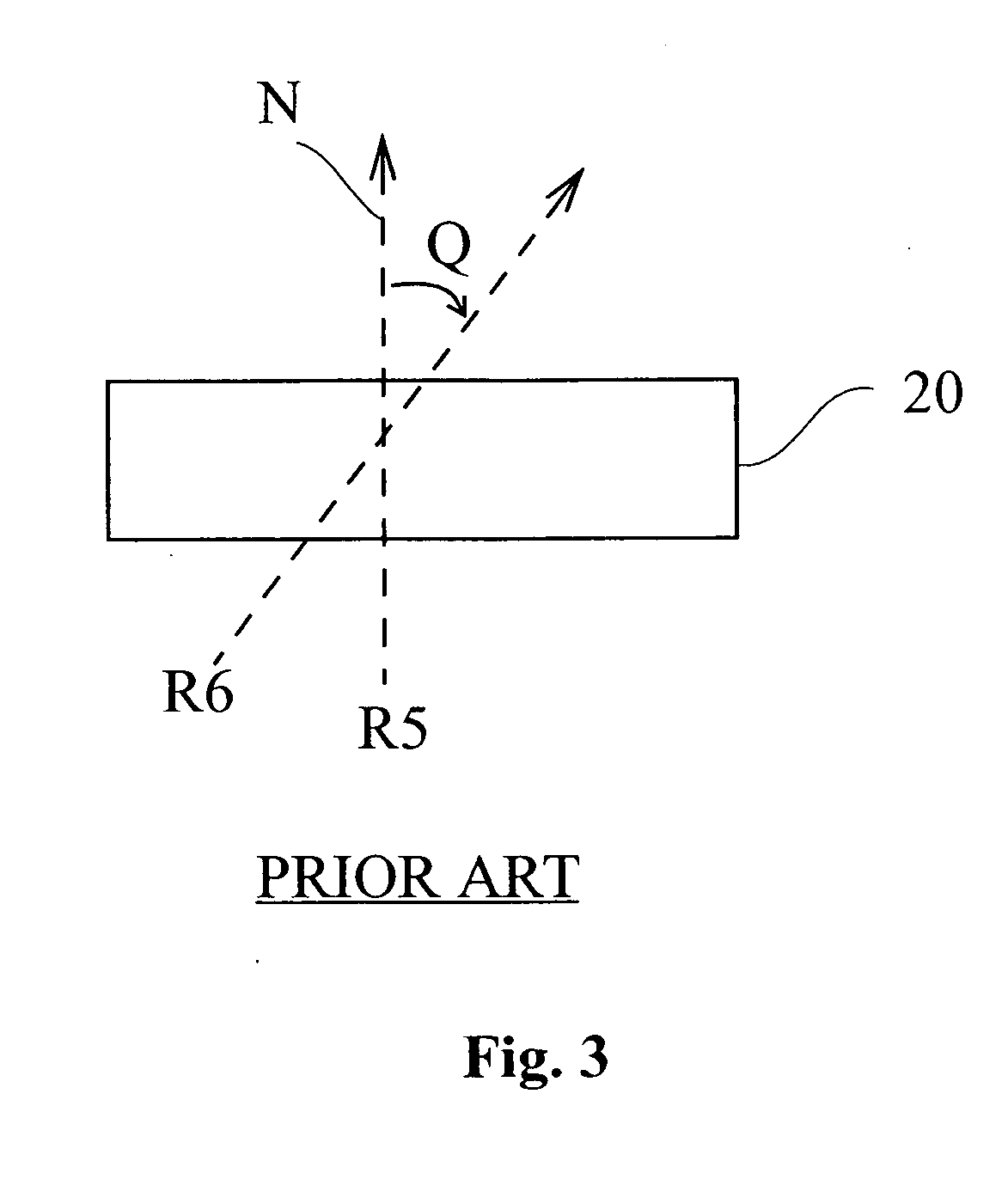Brightness enhancement article
a technology of brightness enhancement and articles, applied in the field of brightness enhancement articles, can solve the problems of inconvenient manufacturing, inconvenient use, and inability to achieve the effect of improving brightness, reducing luminance, and reducing luminan
- Summary
- Abstract
- Description
- Claims
- Application Information
AI Technical Summary
Benefits of technology
Problems solved by technology
Method used
Image
Examples
Embodiment Construction
The present description is directed in particular to elements forming part of, or cooperating more directly with, apparatus in accordance with the invention. It is to be understood that elements not specifically shown or described may take various forms well known to those skilled in the art.
It is instructive to note that brightness enhancement is achieved by conditioning incident light from a light providing surface or other light source to redirect at least a portion of the incident light by refraction. In any particular embodiment, the goal of brightness enhancement depends largely on the application. For some types of display devices, redirection of light toward normal is the preferred type of conditioning needed. In yet other cases, redistribution of light over a broader range of viewing angles is the preferred type of conditioning needed. The apparatus and method of the present invention provide a flexible mechanism for conditioning luminance characteristics in a number of ...
PUM
| Property | Measurement | Unit |
|---|---|---|
| angle | aaaaa | aaaaa |
| distance | aaaaa | aaaaa |
| angles | aaaaa | aaaaa |
Abstract
Description
Claims
Application Information
 Login to View More
Login to View More - R&D
- Intellectual Property
- Life Sciences
- Materials
- Tech Scout
- Unparalleled Data Quality
- Higher Quality Content
- 60% Fewer Hallucinations
Browse by: Latest US Patents, China's latest patents, Technical Efficacy Thesaurus, Application Domain, Technology Topic, Popular Technical Reports.
© 2025 PatSnap. All rights reserved.Legal|Privacy policy|Modern Slavery Act Transparency Statement|Sitemap|About US| Contact US: help@patsnap.com



